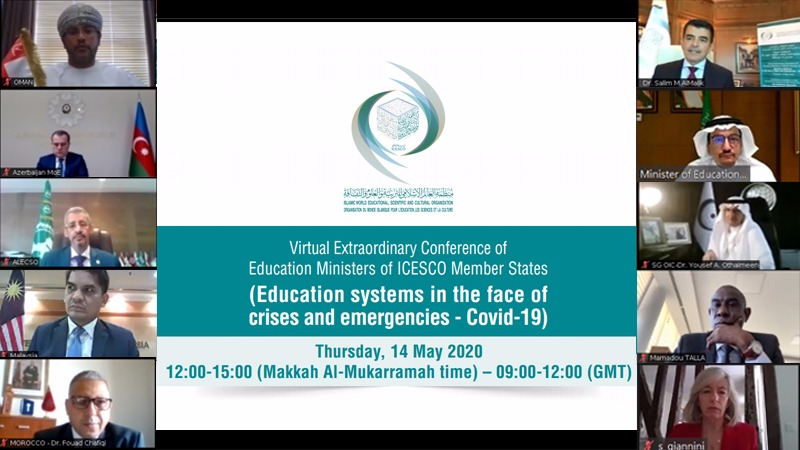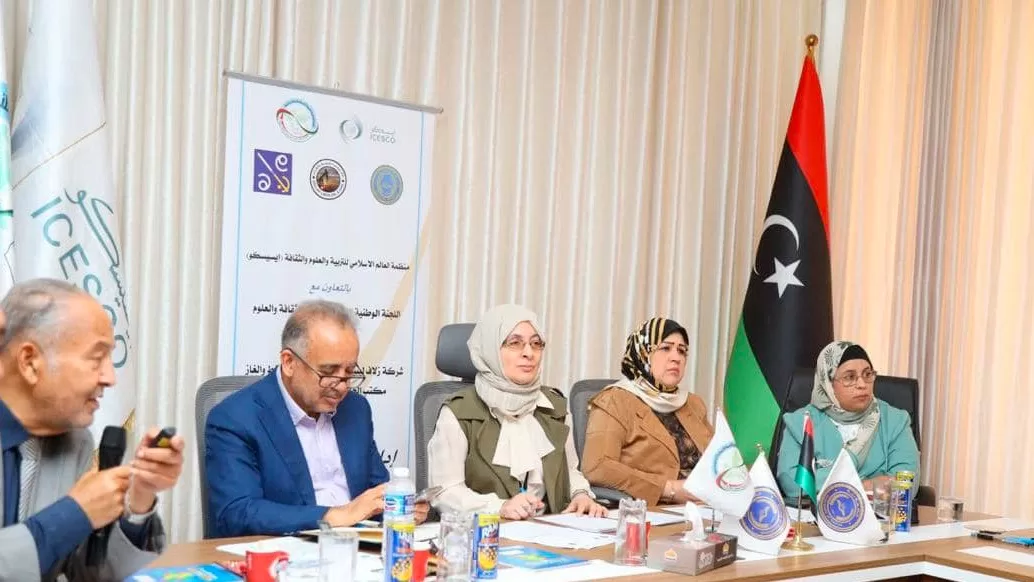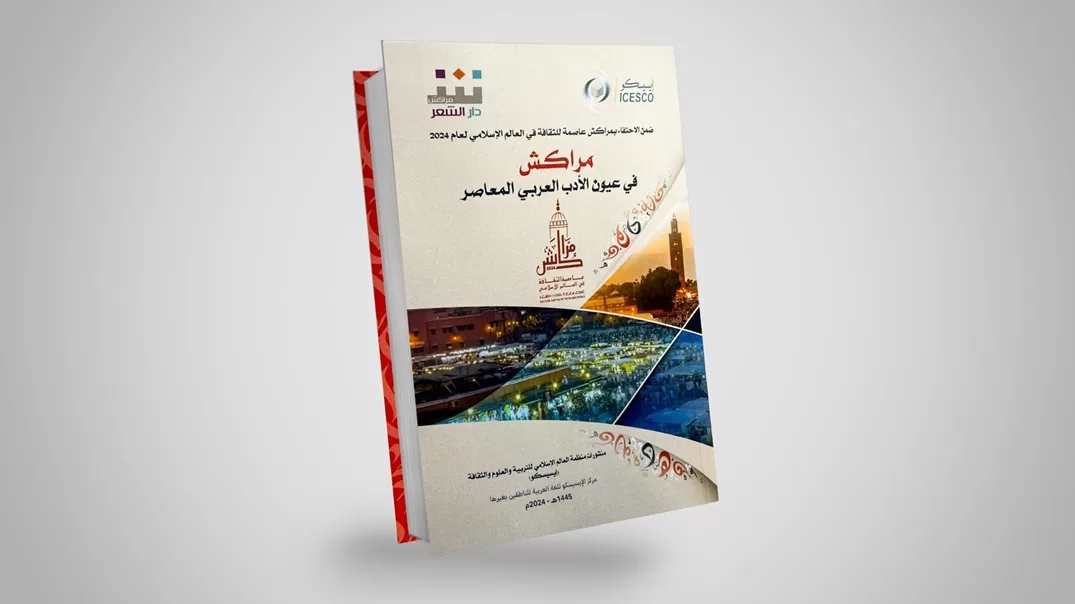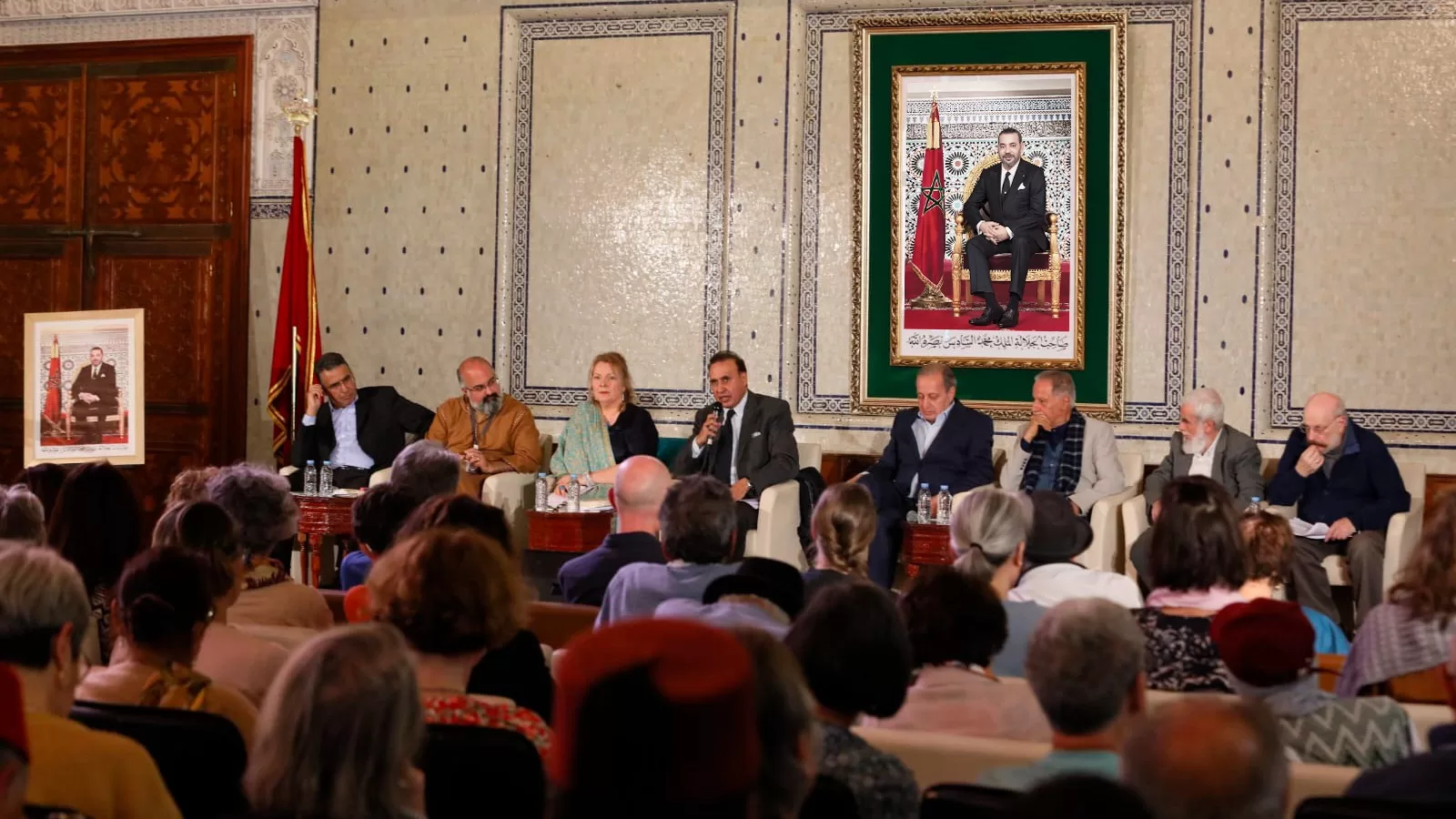
ICESCO Director-General: “Rehabilitating education systems urgently needed to address future challenges”

14 May 2020
The Director-General of the Islamic World Educational, Scientific and Cultural Organization (ICESCO), Dr. Salim M. AlMalik, reaffirmed that education systems need to be rehabilitated so that they can face future challenges and be resilient to crises and emergencies through revamping infrastructure, updating training programmes and using modern technology.
In his address at the opening session of the Extraordinary Virtual Conference of Education Ministers of ICESCO Member States, which kicked off today under the theme “Education Systems in the face of Crises and Emergencies -Covid-19-“, Dr. AlMalik pointed out that the Conference is being held at a time where education systems are being hard hit by this pandemic leading to school disruption and closures of education facilities which had adverse effects on education.
ICESCO Director-General reaffirmed that the Conference constitutes an opportunity to share experiences and explore the most efficient ways to limit the negative impact of the pandemic, which, no matter how serious it may be, shows positive indicators worthy of considering. “Member States can draw on the successful experiences of some countries, particularly the adoption of ICT and AI applications to ensure successful continuity of the educational process toward the achievement of Sustainable Development Goals (SDGs), precisely Goal 4 which aims to “ensure inclusive and equitable quality education and promote lifelong learning opportunities for all, ” Dr. AlMalik added.
Moreover, Dr. AlMalik reaffirmed that ICESCO is fully and unconditionally prepared to put its expertise at the disposal of its Member States to find efficient solutions to the issue of school dropout, which stood at 30% in the pre-crisis levels. “This rate is likely to spike due to the disruption of the education process to levels threatening the quality of education, a challenge that needs to be handled based on a sound academic approach,” he stressed.
By the same token, ICESCO Director-General stressed the importance of the proactive vision to avoid potential complexities in school return under the pandemic, which need to be addressed through adequate measures and efficient solutions. In this regard, Dr. AlMalik noted that ICESCO has prepared a “guidebook for improving the preparedness of education systems to reopen education institutions,” drawing on international expertise. The guide was sent to education ministers for guidance.
In another vein, Dr. AlMalik called for serious steps to standardize and pay further attention to science and mathematics curricula in the Islamic world since mathematics and sciences play a decisive role on the global educational scene as benchmarks for the quality of education systems through international assessments and competitions.
At the close of his address, ICESCO Director-General listed a series of initiatives launched by ICESCO to support the efforts underway to fight the pandemic, specifically “ICESCO Prize for Fighting Against Coronavirus” to reward discoveries of a vaccine or treatment for the virus, “ICESCO Digital Home”, “Societies We Want”, along with the major initiative “Comprehensive Humanitarian Coalition” which aims to help the neediest affected Member States. In this regard, Dr. AlMalik reiterated his call to countries and donors to join the Coalition, which has been joined by many countries and leading international institutions.



